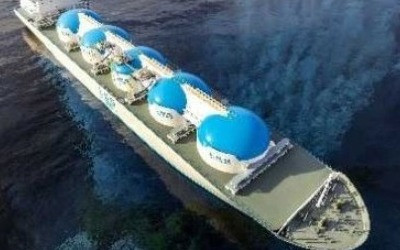April 25, 2014

It goes without saying that the super majors like Shell, BP and Exxon Mobil, would not have invested in South Africa unless they were certain of a noteworthy return on their investments. As well as these major players, it appears a number of other oil and gas companies, such as Sasol Petroleum, are also joining the emerging East African market. This buoyant oil and gas market in Sub Saharan Africa resulted in Petroplan opening an office in Cape Town in 2012, as the regional hub for our activities in Sub Saharan Africa.
It is anticipated that Mozambique has the potential to become the second largest exporter of liquefied natural gas (LNG) by 2020. This could potentially uplift the previously war torn country through job creation and skills development for local Mozambicans. However operators face a challenge in the form of new energy policies being imposed by Government energy officials around taxation regulations and state participation.
With many experts in oil and gas exploration and production approaching retirement age, operators should be harnessing their skills and experience to train and mentor the new generation. Practical training, tertiary education and a greater push by companies and governments in the development of local talent will be critical in the achievement of resourcing targets and there is no time like the present to be progressing this initiative.
Angola is a prime example of the consequences of delaying the training of local nationals. With the Angolan Ministry of Petroleum authorities on a massive drive to reduce the amount of expats working in Angola, their drive to appoint locals in specialised roles is a challenge of monumental proportions. Before the authorities issue a working visa for an expat to enter Angola, the hiring company needs to prove that they have exhausted all avenues to recruit an Angolan national by (for example) creating a press advert and providing proof of the number of applications – even if the candidates are unsuitable. Once an expat candidate has been earmarked for the role, detailed documents need to be completed outlining their skills and experience and justifying the issue of an Angolan entry visa. Essentially, training programs should have been put into play 10+ years ago by the major operators and oil and gas service providers.
Cape Town is rapidly emerging as an energy hub for the wider Sub-Saharan region, with companies such as Chevron and Tullow opening regional headquarters in the city. Furthermore, Saldanha Bay – situated about an hour and a half’s drive up the coast from Cape Town – is being developed into one of the world’s few Oil and Gas Free Zones. These hubs provide a convenient central port for the maintenance of oil rigs along the global oil and gas supply chain; equipment is more easily cleared through customs, and transactions are VAT-exempt – making them a far more attractive proposition for operators than conventional ports.
Home to a plethora of companies specializing in activities such as engineering and fabrication, South Africa has long been renowned for its expertise and skills base in the area of oil and gas maintenance. Saldanha also has a distinct geographical advantage in the changing global marketplace; many oil rigs are produced in Asia, before being deployed to Latin America for exploration and drilling. Saldanha provides a convenient mid-point along this route, as opposed to more distant alternatives such as Dubai or the UK. And needless to say Saldanha is well positioned to service future rigs taking advantage of Africa’s offshore reserves.
The case for the Saldanha Free Zone overlaps with the wider case for South Africa as a regional industry hub: good infrastructure, a first world business environment, English-speaking, the African continent’s largest economy, world-class business schools, high standards of living, good regional transport links, a strong relationship with other emerging producing countries such as Mozambique … the list goes on. And the region will certainly need a hub in the years to come: Africa’s proven onshore oil reserves stand at around 124bn barrels, with another 100bn estimated offshore, with its proven reserves of natural gas amounting to around 509 trillion cubic feet.
Since late 2007, South Africa’s electricity provider ESKOM has faced challenges to provide power from their coal fired power stations and meet the energy demands of South Africa. A number of different factors have contributed to these challenges, such as high supply and demand and the inability to generate the required capacity owing to a high supply and demand. The use of shale gas would significantly ease the current energy crisis; however there are many hurdles and challenges that need to be overcome before the country reaches that stage. Conservationists and local residents have been furiously lobbying against fracking and the long term impact it will have on the region’s groundwater resources. Rural areas like the Karoo, inland settlements and towns are dependent on groundwater reserves, not only for human consumption, but for agriculture – their life blood. The ghosts of fracking in the US are all too evident and the average man on the street is asking “to frack or not to frack”, THAT is the question!






You can also use your social account to sign in. First you need to:
To connect your social account you must Acknowledge the Terms & Conditions and Privacy Policy